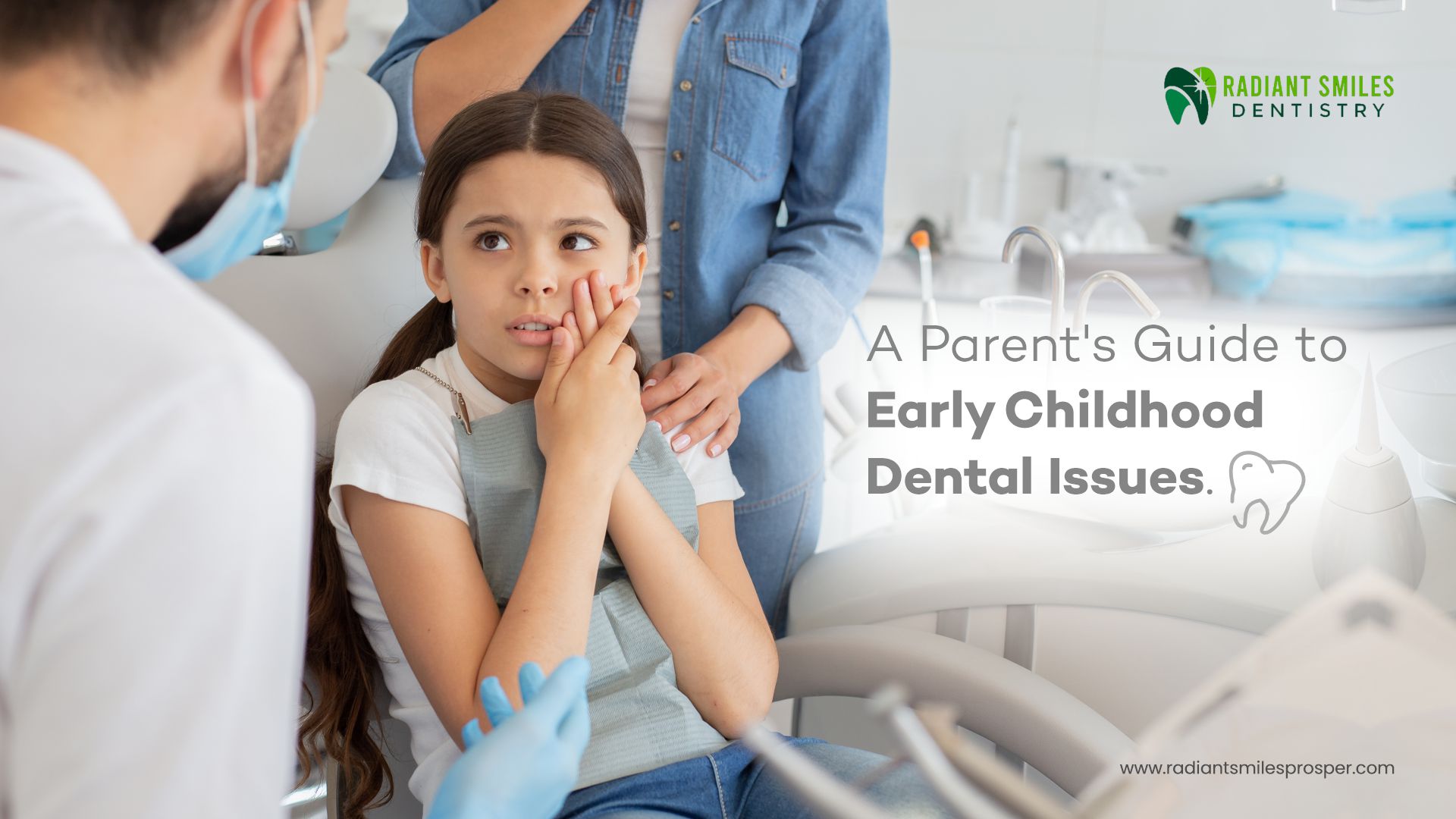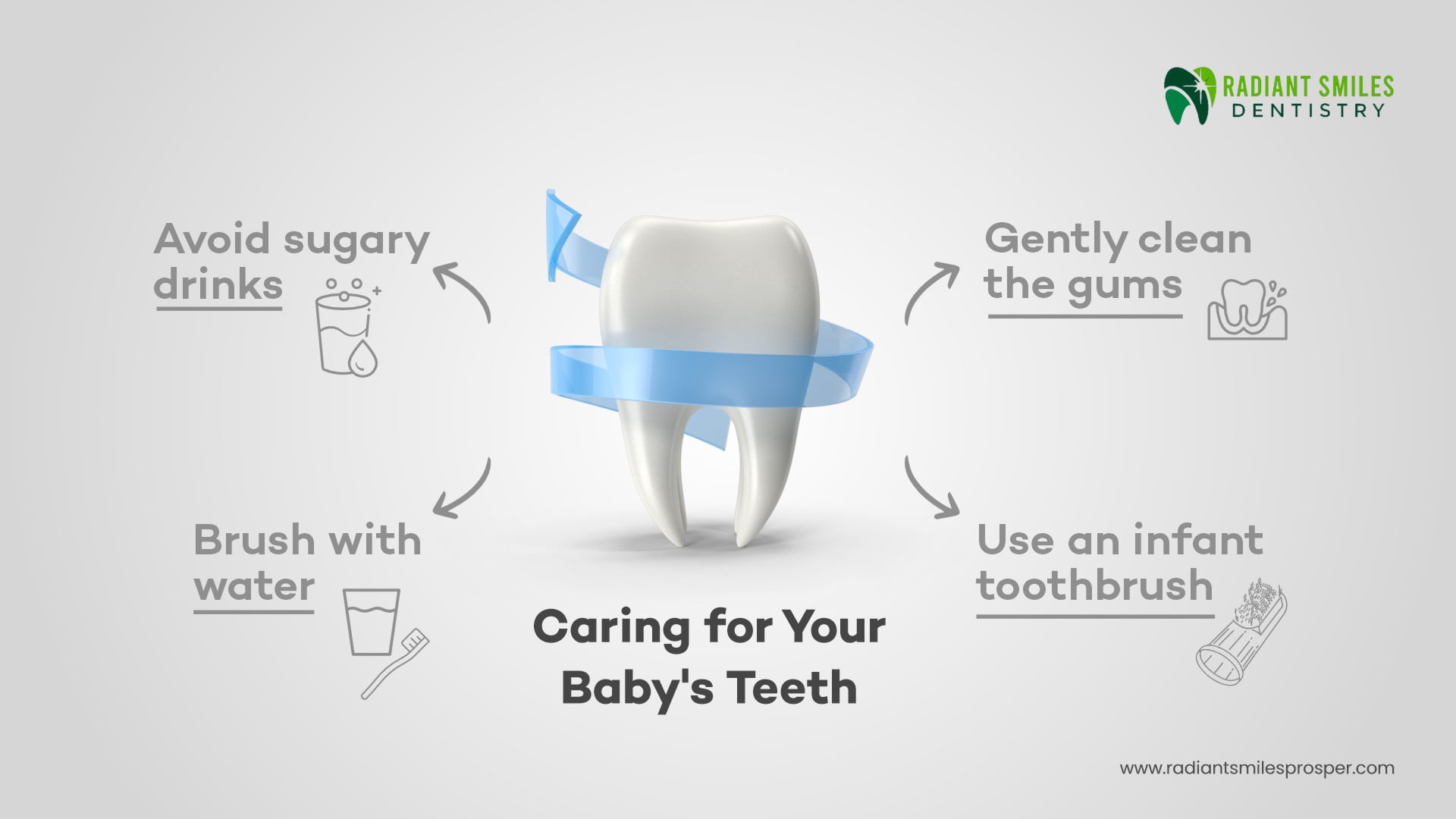The Power of Preventive Dental Care: Understanding Best General Dentistry Practices!
General precautionary measures to improve dental health can have a…

Having a child at home is like seeing your heart walk outside your body. That’s such a heartwarming experience of being a parent and watching them grow up each day. However, we can not deny the fact that being a parent is the most challenging journey one could ever embark on. As a parent, we are liable to take care of the best upbringing, imbibing good virtues and fostering best hygiene practices.
We usually pay close attention to their emotional health, mental health, physical health, educational growth and more. But most of the time we forget about their oral hygiene and the best practices to inculcate good oral hygiene habits in their lifestyle.
If dental care does not begin at an early stage of childhood, children are liable to not give it much significance. In their adulthood and later on. Therefore, each parent is liable to take responsibility for their child’s dental health care by maintaining good oral practice for themselves and then initiating their child’s dental care. You can simply begin with the smallest actions, such as cleaning your child’s gum after feeding, and replacing their milk cup with the ceramic cup when they are 1 year old.
Start brushing their teeth once they are 2-3 years old and use fluoride toothpaste for them. And if your toothpaste is not having fluoride then you can use the tape water from your house, as it contains fluoride. However, if you use purified water everywhere in the house, then you can ask your child’s dentist (Pediatric dentist) to provide you with a prescription for fluoride supplements.
Parents have to take care of this as their baby’s everyday accessories gradually become factors that significantly affect their baby’s dental health. Your baby’s teeth could be affected by its bottle and thumb-sucking habits. Therefore, it is advisable to not use any plastic elements and any such milk bottles that contain plastic or related elements. Additionally, thumb-sucking for a longer period of time has the potential to damage your kind’s oral health.
In this blog, we will talk about dental issues and oral hygiene for your child. By reading this blog, you can get to know how to function as a pediatric dentist for your child. Let’s dive deep into the topic below.
Early childhood dental care is essential for several reasons. First and foremost, it sets the foundation for lifelong oral hygiene habits. By instilling good dental care practices early on, you are teaching your child the importance of taking care of their teeth and gums. This will have a lasting impact on their oral health as they grow older.
Another significant benefit of early dental care is the prevention of dental issues. Regular visits to the dentist can detect and address any potential problems before they become more serious, such as cavities or gum disease. By identifying these issues early on, you can prevent pain and discomfort for your child and avoid more extensive and costly treatments in the future.
Additionally, maintaining good oral hygiene from a young age can have a positive impact on your child’s overall physical health. Poor oral health has been linked to various chronic diseases, including heart disease and diabetes. By prioritizing early childhood dental care, you are setting your child up for better overall health later in life.
Lastly, promoting good dental habits can boost your child’s confidence and self-esteem. A healthy smile can make them feel more confident in social interactions and improve their overall quality of life.
Even before your baby’s first tooth emerges, it’s important to start practicing good oral hygiene. Here are some tips for caring for your baby’s teeth:

Before your baby’s teeth come in, you can start by gently wiping their gums with a clean, moistened gauze pad or washcloth. This helps remove any bacteria or food particles.
Once your baby’s first tooth appears, you can start using an infant toothbrush. Choose a soft-bristled brush specifically designed for babies.
Initially, you can simply use water to brush your baby’s teeth. As they grow older and can spit out toothpaste, you can introduce a small amount of fluoride toothpaste.
Never allow your baby to fall asleep with a bottle containing sugary liquids, as this can lead to tooth decay. Stick to water or plain milk instead.
Consult with your dentist about scheduling your baby’s first dental visit. The first visit should ideally occur within six months after the first tooth appears or by their first birthday.
By following these steps, you can establish a solid foundation for your baby’s dental health and ensure they have a healthy smile as they grow.
Teething can be a challenging time for both babies and parents. Here are some tips to help manage your baby’s teething discomfort:
Although, it is necessary to remember, every baby is unique, and their teething experience may vary. Therefore, be patient and provide comfort and support to help your baby through this milestone.
Some parents may wonder why baby teeth are important if they will eventually be replaced by permanent teeth. Baby teeth, also known as primary teeth, play a crucial role in your child’s dental development. Here’s why baby teeth are significant:
Understanding the importance of baby teeth can help you prioritize their care and ensure your child’s dental health is on the right track.
The first dental visit is a crucial milestone in your child’s dental care journey. Here’s what you need to know about scheduling the first dental visit and what to expect during the appointment:
Remember, the first dental visit is not only about dental care but also about building a positive and trusting relationship between your child and the dentist. Make the experience enjoyable for your child and reinforce the importance of regular dental check-ups.
Sucking is a natural reflex in infants and young children. While thumb-sucking and pacifier use can provide comfort, they may also impact dental development. Here are some considerations:
Baby bottle tooth decay, also known as early childhood caries, can occur when a baby’s teeth are frequently exposed to sugary liquids. Here are some strategies to prevent baby bottle tooth decay:
By following these preventive measures, you can significantly reduce the risk of baby bottle tooth decay and support your child’s oral health.
Early childhood dental care is crucial for ensuring your child’s oral health and overall well-being. By prioritizing good dental habits from an early age, you are setting your child up for a lifetime of healthy smiles. Normalize brushing and flossing their teeth, promote a healthy diet, schedule regular dental visits, and foster positive dental experiences.
By doing so, you are investing in your child’s oral health and helping them develop lifelong dental care habits. With your guidance and support, your child will have a bright and healthy smile for years to come.
General precautionary measures to improve dental health can have a…
Root canal treatment is a dental technique pointed...
Root canal treatment is a dental technique pointed...